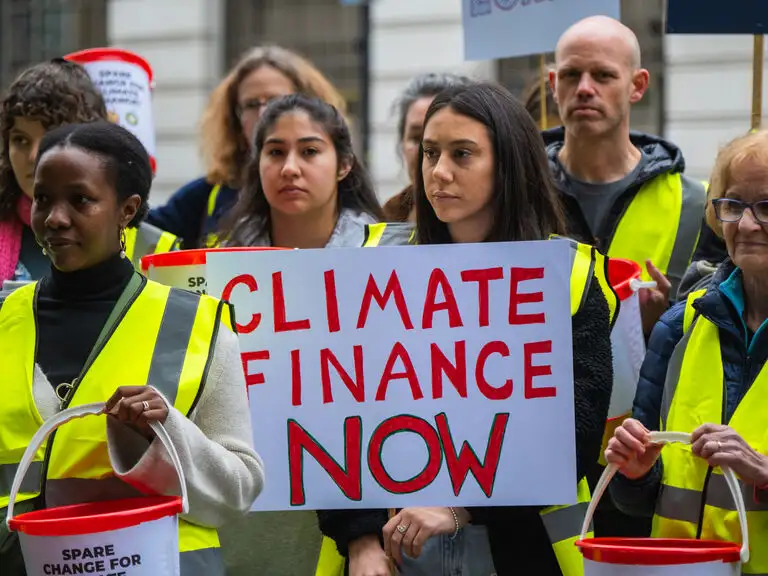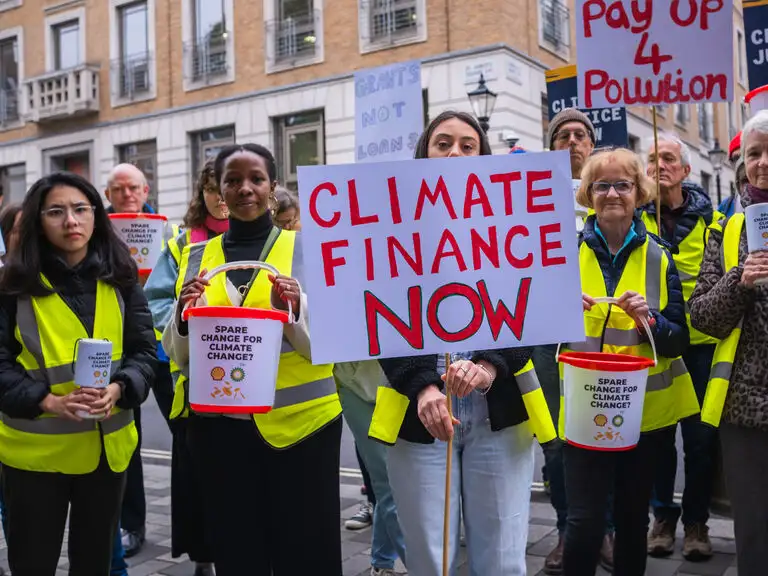

Campaigners argue that governments must tax major polluters such as fossil fuel companies to raise further money to fund the climate finance pot.
Fossil fuel companies should be taxed more to provide funds for countries on the frontline of the climate crisis, Anglican and Catholic bishops have told ministers.
In a letter to the UK government, the Rt Rev Graham Usher for the Church of England and Rt Rev John Arnold for the Catholic Church in England and Wales called for higher taxes on major polluters. The pair are lead bishops for environmental affairs in their respective churches.
The letter comes ahead of the start of the COP29 climate talks in Azerbaijan. Proposals to tax large polluters are expected to be included in negotiations at the summit on how to fill gaps in funding for developing countries hardest hit by the climate emergency – known as ‘international climate finance’.
Poorest communities ‘paying impossible price’ for climate crisis
Bishops Usher and Arnold argue in the letter that the funding gap means climate-vulnerable countries are “being forced to pay an impossible price for measures to protect their communities and rebuild from climate disasters”.
“The fact that those who have contributed least to causing the climate crisis, face an unaffordable bill for its impacts is an injustice we cannot tolerate as a country.
“We urge you to ensure your government plays the strongest possible role in remedying this injustice.”
Tax those ‘profiting from environmental damage’
Taxing polluting activities undertaken by the wealthiest companies and individuals would raise funds from those who are “profiting from environmental damage” and “help to incentivise the transition to renewables”, the bishops state.
The bishops also warn ministers that leaders at COP29 must agree to provide more climate finance as grants, arguing that loans will only “add to low-income countries’ existing and crippling debts”.
Providing further sources of finance by cancelling debts for countries facing a debt crisis would prevent such countries facing a “choice between paying huge interest bills to overseas lenders and paying to protect their communities from the climate crisis”, the bishops argue.
COP29 will start in Baku, Azerbaijan on 11 November and is due to finish on 22 November.

What happened at COP29?
The COP29 talks in Azerbaijan ended with a weak deal to provide low-income countries with money to tackle the climate crisis.
Governments at the summit agreed to increase the amount of money countries hardest hit by the crisis will receive to $300bn a year.
But the agreement will not provide enough money for affected countries to prepare for climate disasters and rebuild after emergencies.

